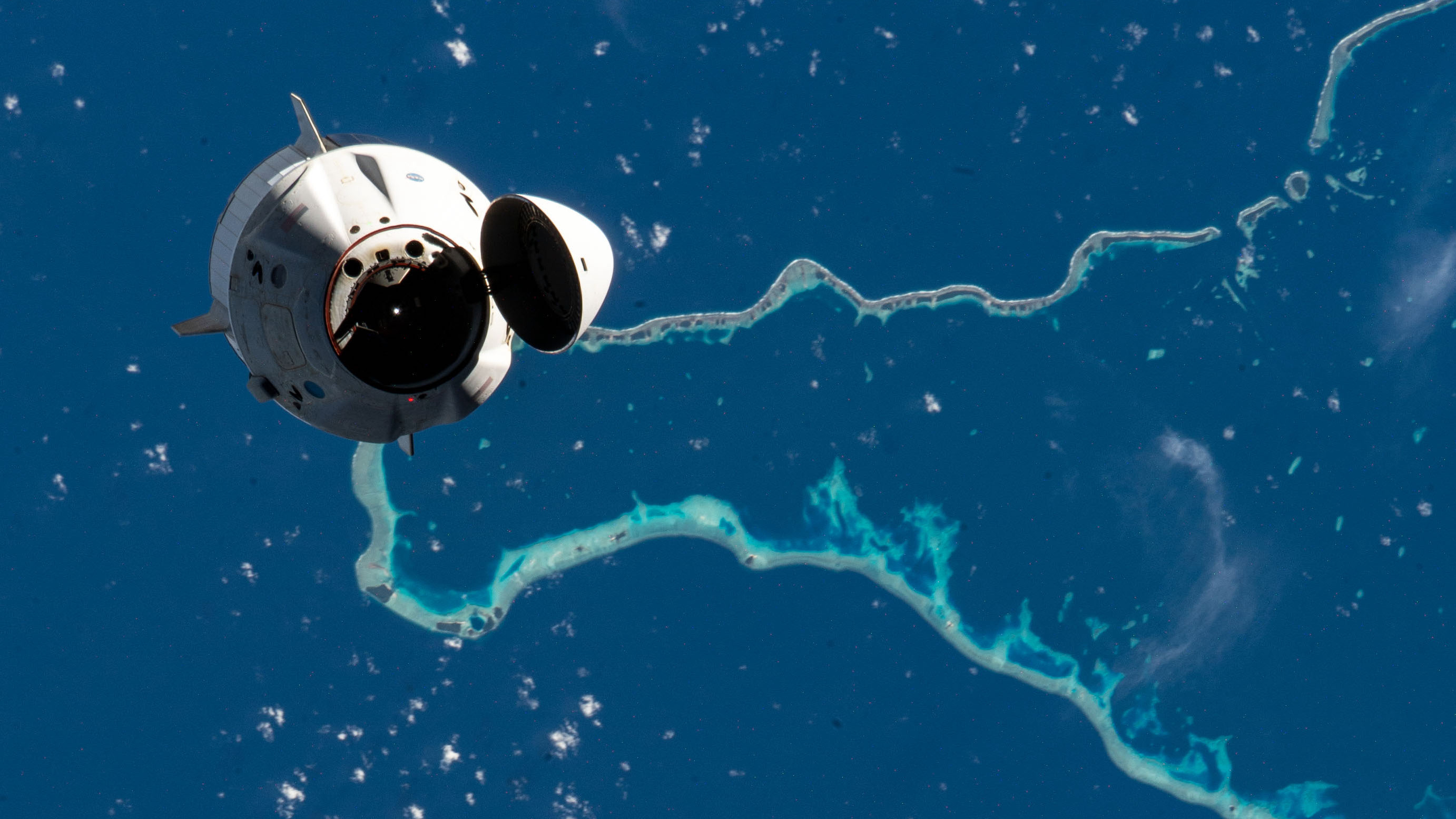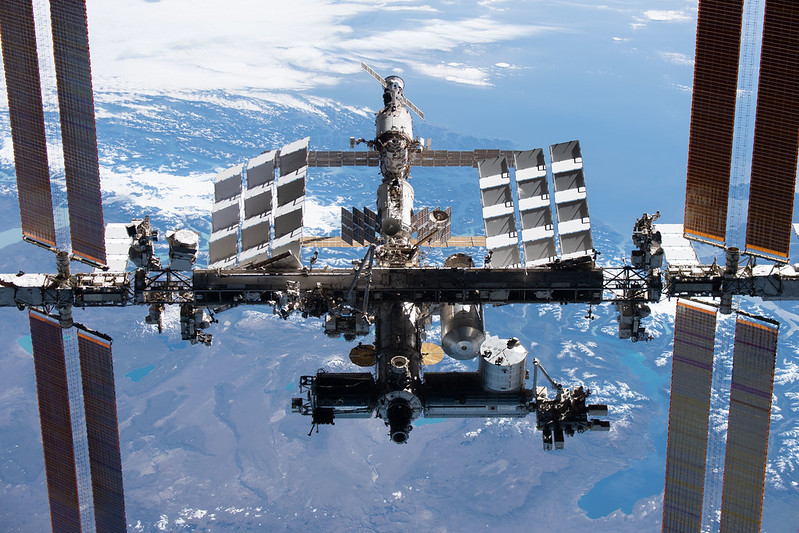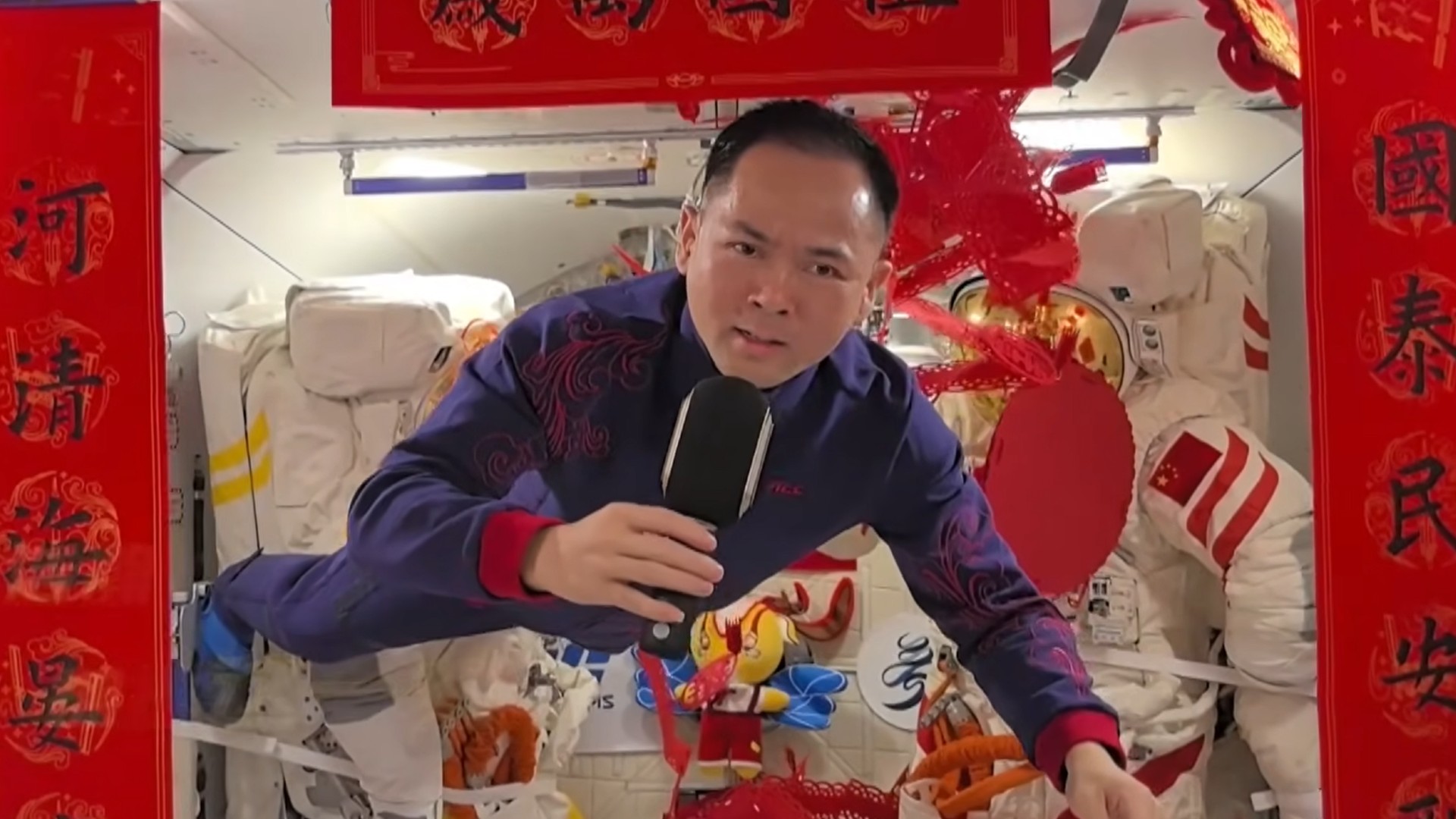NASA says SpaceX is only provider so far able to provide astronaut taxi rides
The company received three more mission orders for Crew Dragon as Boeing Starliner works to get off the ground.

Breaking space news, the latest updates on rocket launches, skywatching events and more!
You are now subscribed
Your newsletter sign-up was successful
Want to add more newsletters?

Delivered daily
Daily Newsletter
Breaking space news, the latest updates on rocket launches, skywatching events and more!

Once a month
Watch This Space
Sign up to our monthly entertainment newsletter to keep up with all our coverage of the latest sci-fi and space movies, tv shows, games and books.

Once a week
Night Sky This Week
Discover this week's must-see night sky events, moon phases, and stunning astrophotos. Sign up for our skywatching newsletter and explore the universe with us!

Twice a month
Strange New Words
Space.com's Sci-Fi Reader's Club. Read a sci-fi short story every month and join a virtual community of fellow science fiction fans!
SpaceX is the only American company right now capable of sending astronauts to the International Space Station, NASA said in awarding the company additional flights.
The Hawthorne, California-based firm received a sole-source modification to the existing contract between NASA and SpaceX. The modification will allow the agency to acquire up to three additional flights to the International Space Station using its Crew Dragon system; these would follow the six crewed flights already arranged.
NASA did solicit other companies before awarding the contract, by asking in October for any other offers for astronaut taxi rides. But SpaceX remains the only firm currently capable of the service under its Commercial Crew Transportation Capabilities (CCtCap) contract, first awarded in 2014.
In photos: SpaceX's Crew-3 astronaut launch for NASA
"SpaceX's crew transportation system is the only one certified to meet NASA’s safety requirements to transport crew to the space station, and to maintain the agency’s obligation to its international partners in the needed timeframe," NASA said in a Dec. 3 statement.

The agency is working to send larger crews to the space station to boost its science and to make the facility attractive to commercial companies, such as Axiom Space, which will launch the first all-private mission to the complex in early 2022.
NASA used to send astronauts aloft in the space shuttle, but retired the program in 2011 following 30 years of service. The agency then spent several years helping American companies develop replacement commercial crew vehicles before awarding SpaceX and Boeing transportation contracts in 2014. (In the interim, NASA astronauts flew on Russian Soyuz capsules, paid for by the seat.)
Breaking space news, the latest updates on rocket launches, skywatching events and more!
Although SpaceX sent the first crewed spacecraft to the ISS in 2020, Boeing's Starliner is not ready for flight yet. Starliner had a difficult uncrewed test flight in December 2019 that did not reach the orbiting complex due to a series of glitches. Boeing's attempt to run a second uncrewed test flight in 2021 got derailed by problems with an oxidizer valve, sidelining the system until at least 2022.
So NASA awarded the new contract, which is expected to take effect in 2023, to SpaceX, allowing the agency to turn its attention back to helping Boeing with the flight certification, according to the statement.

NASA's eventual plan is to alternate flights between SpaceX's and Boeing's systems once Boeing is ready, the agency said, and it is prepared to add more spacecraft systems as the need expands.
Commercial service to the ISS will likely expand rapidly in the coming years, as the complex pivots to allow more companies on board to do experiments and research. It may be that SpaceX and Boeing could be used for future space stations as well; last week, NASA revealed a set of early-stage commercial designs it hopes will be ready to replace the ISS by 2030.
Follow Elizabeth Howell on Twitter @howellspace. Follow us on Twitter @Spacedotcom and on Facebook.

Elizabeth Howell (she/her), Ph.D., was a staff writer in the spaceflight channel between 2022 and 2024 specializing in Canadian space news. She was contributing writer for Space.com for 10 years from 2012 to 2024. Elizabeth's reporting includes multiple exclusives with the White House, leading world coverage about a lost-and-found space tomato on the International Space Station, witnessing five human spaceflight launches on two continents, flying parabolic, working inside a spacesuit, and participating in a simulated Mars mission. Her latest book, "Why Am I Taller?" (ECW Press, 2022) is co-written with astronaut Dave Williams.
